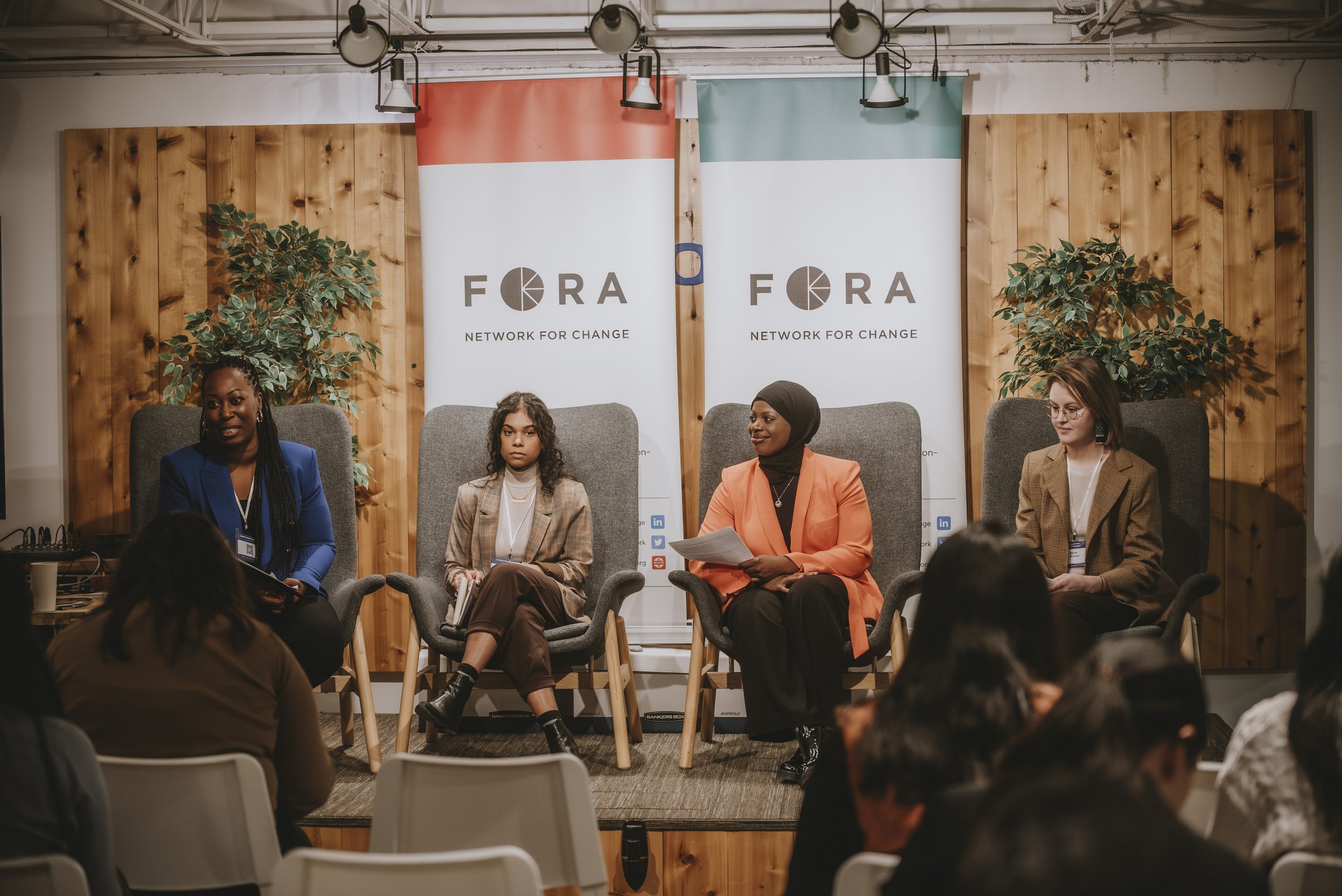
Actioning the Research
What does a Young Feminist Economy look like in real life?
OUR NON-PROFIT TOOLKIT:
Ensuring a Young Feminist Economy
To learn how this framework can help transform the non-profit sector, read our toolkit here.
Our research and conversations with youth across Canada and around the world confirm one thing: our economic systems are not designed with the prosperity of young women and gender-marginalized youth in mind.
In harnessing this ambitious dream, Fora has drawn on the insights of its Young Feminist Economy report to outline three key features of a young, feminist framework which will help in the reimagining and rebuilding of traditional power structures and systems.
“A young feminist economy ultimately places young leaders facing discrimination on the basis of their gender not as an appendix or footnote, but the heart of its analysis and policy planning.”
- Kassandra Neranjan
Here’s how Fora applies our Young Feminist Economy framework:
-

1. INTERSECTIONAL FEMINIST ANALYSIS
Approach the environment with an intersectionality feminist lens; taking stake of a person’s whole identity in relation to the larger oppressive systems at play.
-
2. PROSPERITY FOCUSED DESIGN
Design solutions with the prosperity of gender-marginalized youth in mind to ensure that this demographic isn’t reduced to an afterthought.
-

3. EQUITABLE EXECUTION
Commit to distributing resources, tasks, and supports equitably instead of equally - to ensure that everyone is provided with the necessary support they require to meet their full potential.
Key Challenges for Youth in the Canadian Economy
The following outline the primary categories of gaps identified by respondents during community consultations. The Toolkit delves into a comprehensive exploration and analysis of the gaps identified by respondents and community organizations within the Canadian economy.
GAP IN THE CARE ECONOMY
One of the prominent gaps in the Canadian economy lies in the lack of investment in the care sector, particularly in frontline staff and childcare workers. Respondents highlight the necessity to allocate greater resources to social protection, healthcare, long-term care, childcare, and community care.
UNAFFORDABLE HOUSING & HOMELESSNESS
A significant challenge faced by the Canadian economy is the issue of unaffordable housing and homelessness. Respondents advocate for treating housing as a human right and implementing measures to subsidize housing and increase accessibility.
YOUTH EDUCATION & EMPLOYMENT
Many young individuals find themselves outside the realms of education, employment, or training. Respondents stress the necessity of ensuring that young people are in school, reskilling, and upskilling while the economy recovers from the pandemic.
UNDERFUNDING NON-PROFITS & SOCIAL SERVICES
The non-profit sector, charitable organizations, and social services face lack of federal funding, which jeopardizes their invaluable work in supporting communities and advocating for gender equity and the rights of equity-deserving groups across Canada.
Mind the Gap: What Our Research Tells Us
“The first step towards hacking the system and providing young leaders an equitable chance at social and economic prosperity is to question the injustice faced by young women and everyone else marginalized by their gender.”
— Mekhalaa Muraly, Fora Advocacy research assistant










